Planning
As described in more detail later, all young people at Corseford experience some Spanish language and culture by way of whole school activities such as assemblies and corridor displays.
In terms of specific lessons, learners of Spanish in upper Primary, S1/S2 or Senior Phase classes, have a variety of opportunities to develop and reflect on their skills in reading, writing, talking and listening in Spanish.
The aim is to develop pupils’ skills for life, skills for learning and skills for work and:
- ‘To provide a learning environment which takes into consideration the needs, aptitudes and abilities of all pupils.
- To provide a learning environment which challenges all pupils and which all pupils find stimulating and demanding’ (Departmental Handbook, 2015, internal)
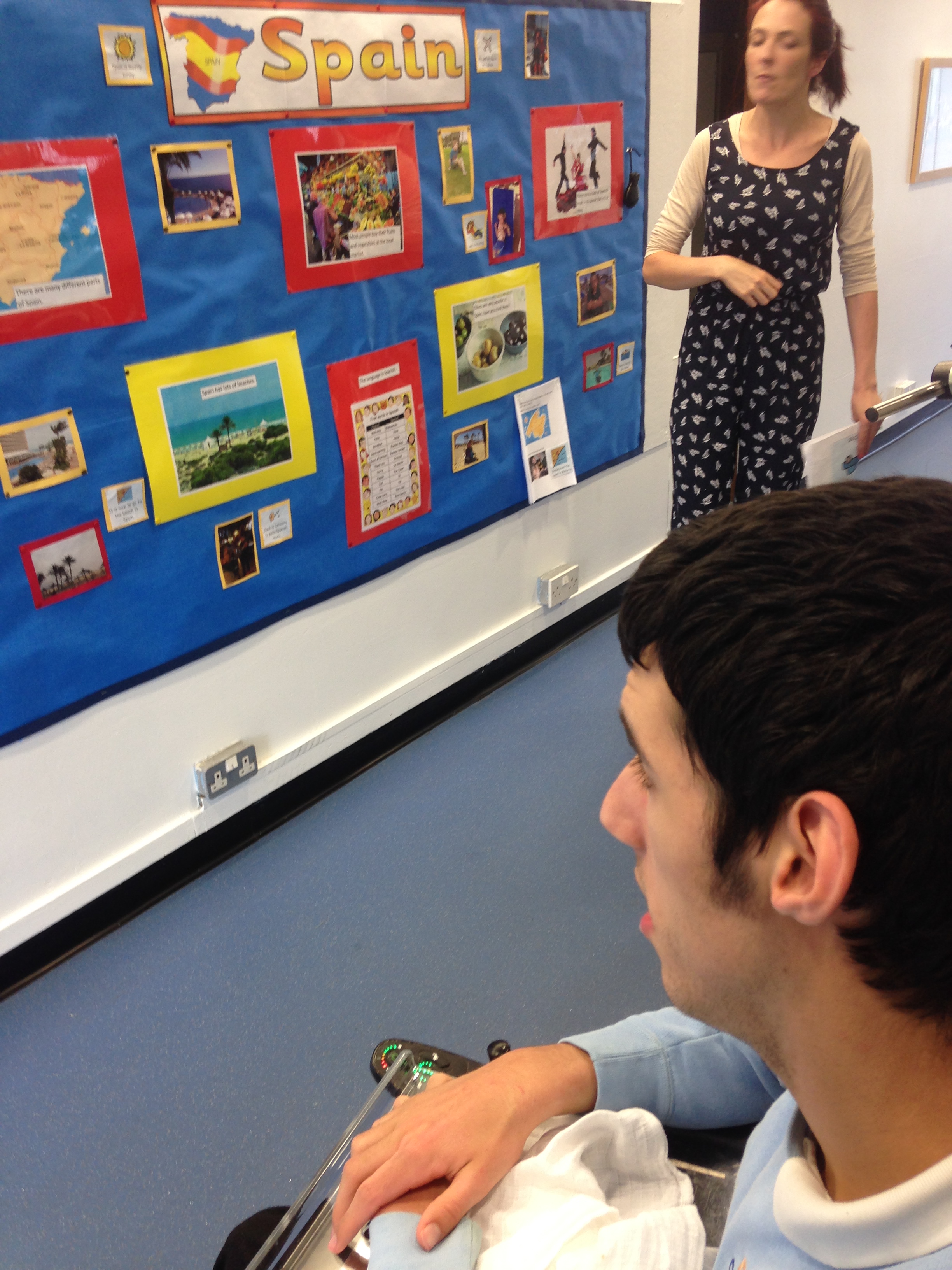
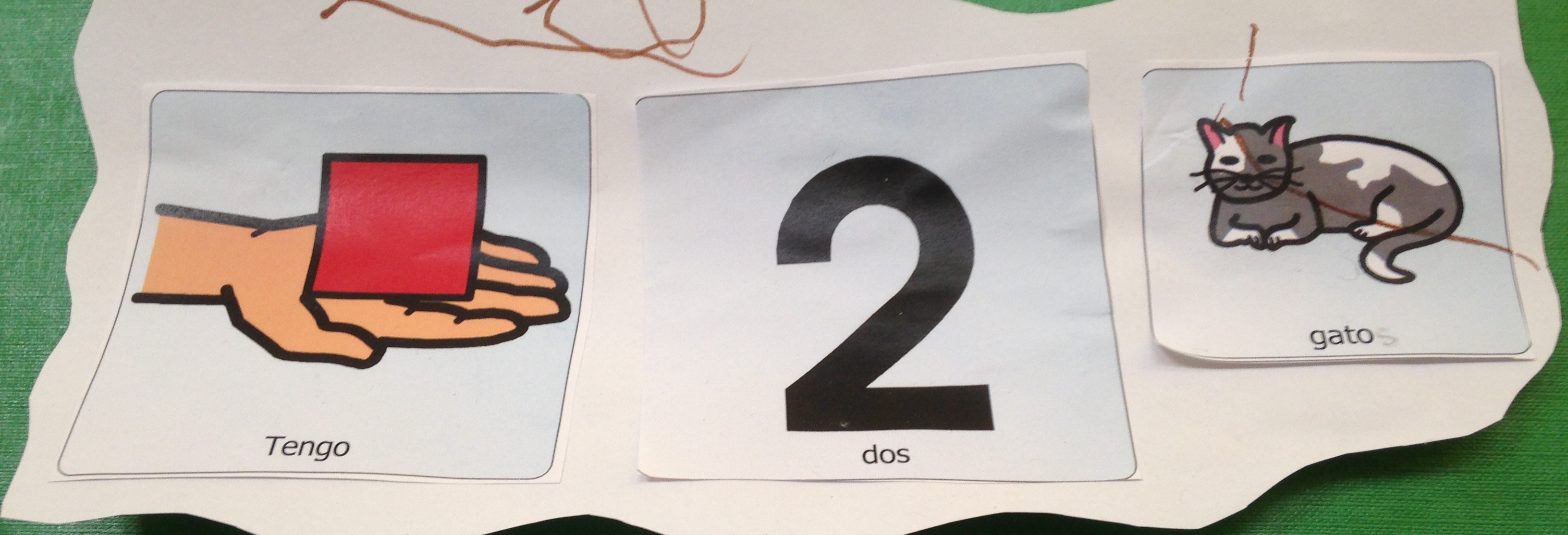

Learning is pitched at an appropriate level of pace and challenge, going beyond the teaching of simple words and phrases towards the construction of oral and written sentences within a variety of contexts.
Learners who continue with Spanish in the Senior Phase are likely to be working towards accreditation at National 1, 2 or 3.
National 1 modules are: Life in Another Country: Aspects of Life and Life in Another Country: Language.
National 2 modules are: Life in another country; Personal language; Transactional language; Language in Work.
Modern Languages for Life and Work Award modules are: Modern Languages for work purposes; Modern Languages for Life; and Building own employability skills.
The key to Corseford’s approach to learning in Spanish and across the curriculum is:
‘Encouraging and facilitating learners’communication methods, including eye pointing, voice output communication aids (VOCAs), Step by Step, flashcards or other resources. This includes liaising with class teams and Speech and Language therapists to determine which communication methods are best suited to the needs of each pupil, what their Speech and Language Targets are, and ensuring that pupils have access to relevant vocabulary e.g. words programmed onto VOCAs, Boardmaker boards and flashcards prepared in advance.’ (ibid)
Implementation
Learners, support and teaching staff across the school participated in a Café Español in May 2015. Everyone was encouraged to use the Boardmaker menus to order food and drinks in Spanish while some of the Spanish students served and took payment in euros.
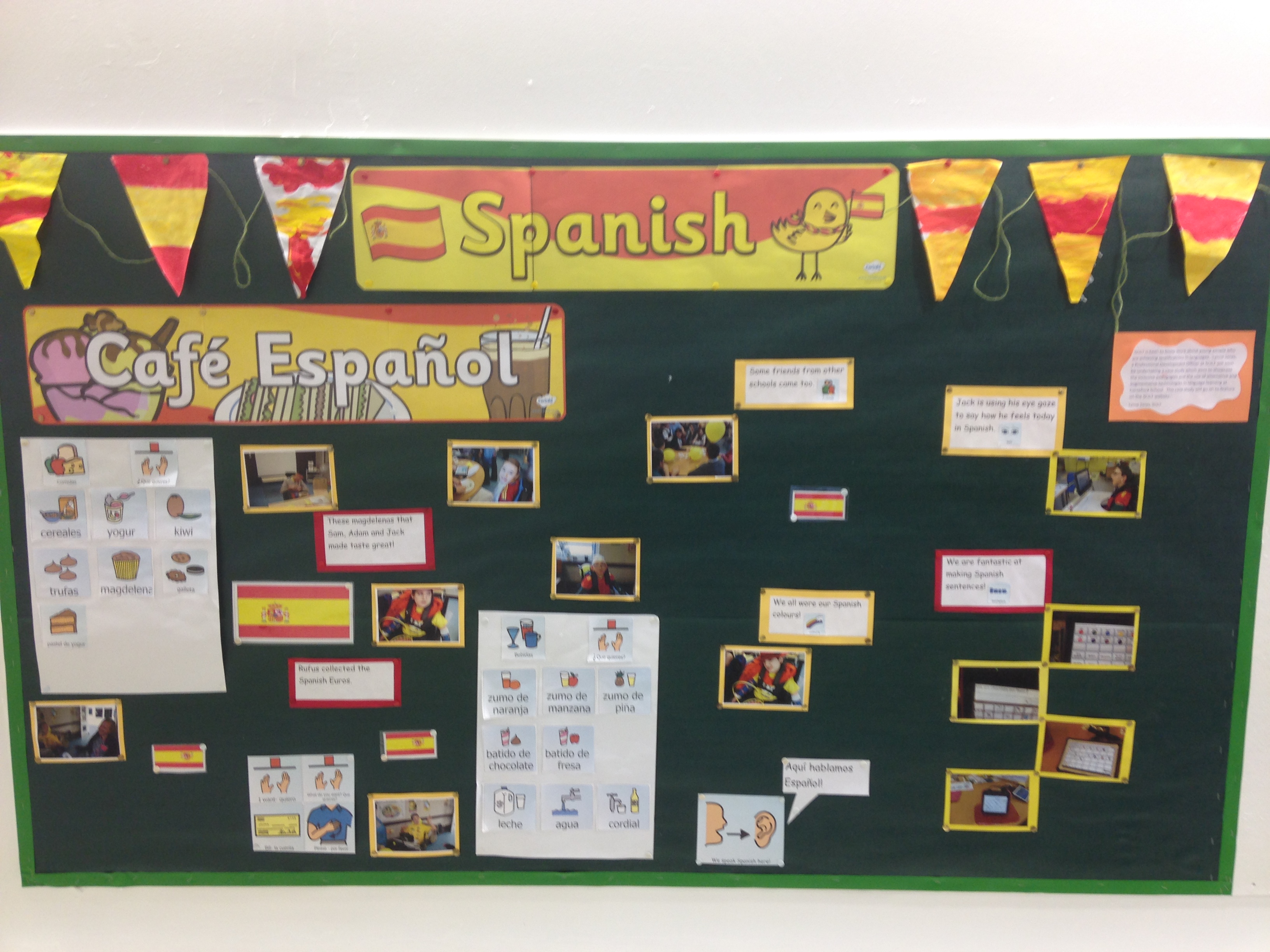
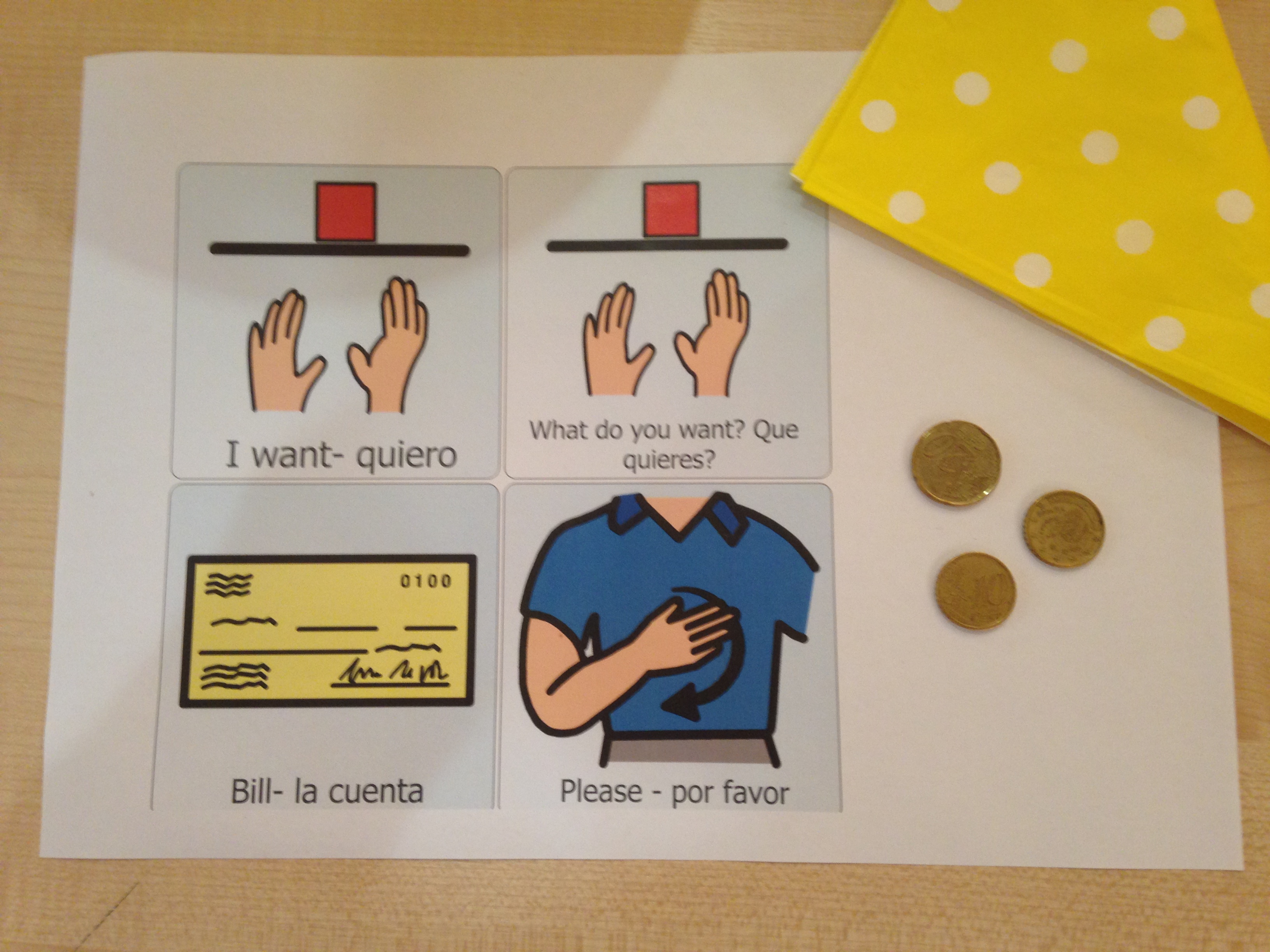
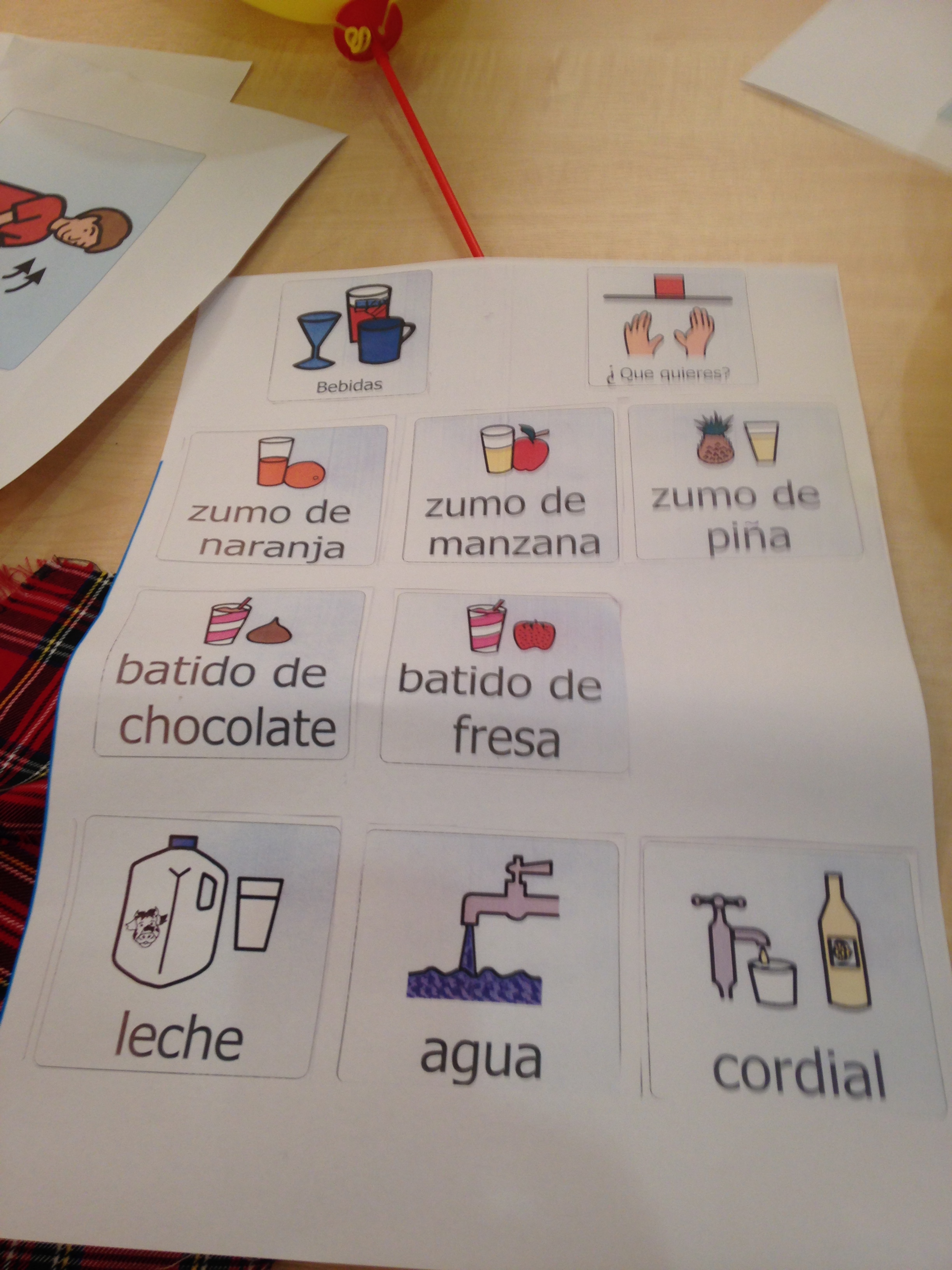
‘All students contributed to our recent Spanish café. Students enjoyed making magdelenas and chocolate caliente to serve on the day and, using the language learned over the past three terms, students undertook roles as customers and workers in the café. Local schools visited and mingled with the students, who all excelled in their roles! Everyone enjoyed the delicious treats!
Many of the students have experience of holidays in Spain and this really helped them to link their prior knowledge with what they have been learning at school. The context of the café brought learning to life through a very meaningful experience.’ (Maggie Macaskill, SCILT newsletter, Spring 2015, p.18)
Carefully planned lessons provide opportunities for learners with communication challenges to use their AAC devices to communicate in Spanish.
‘The key to teaching and learning here is the methodology, particularly in terms of communication and visual prompts as well and sensory prompts too. You know methodology is so important to us and it’s how we bring learning to life for our kids. It’s just about making sure that the messages that I want to get across in my teaching … the children are able to respond to them through their communication systems and it’s about good planning and organisation and staff support who know the children really well too.’ (Maggie Macaskill, Spanish teacher)
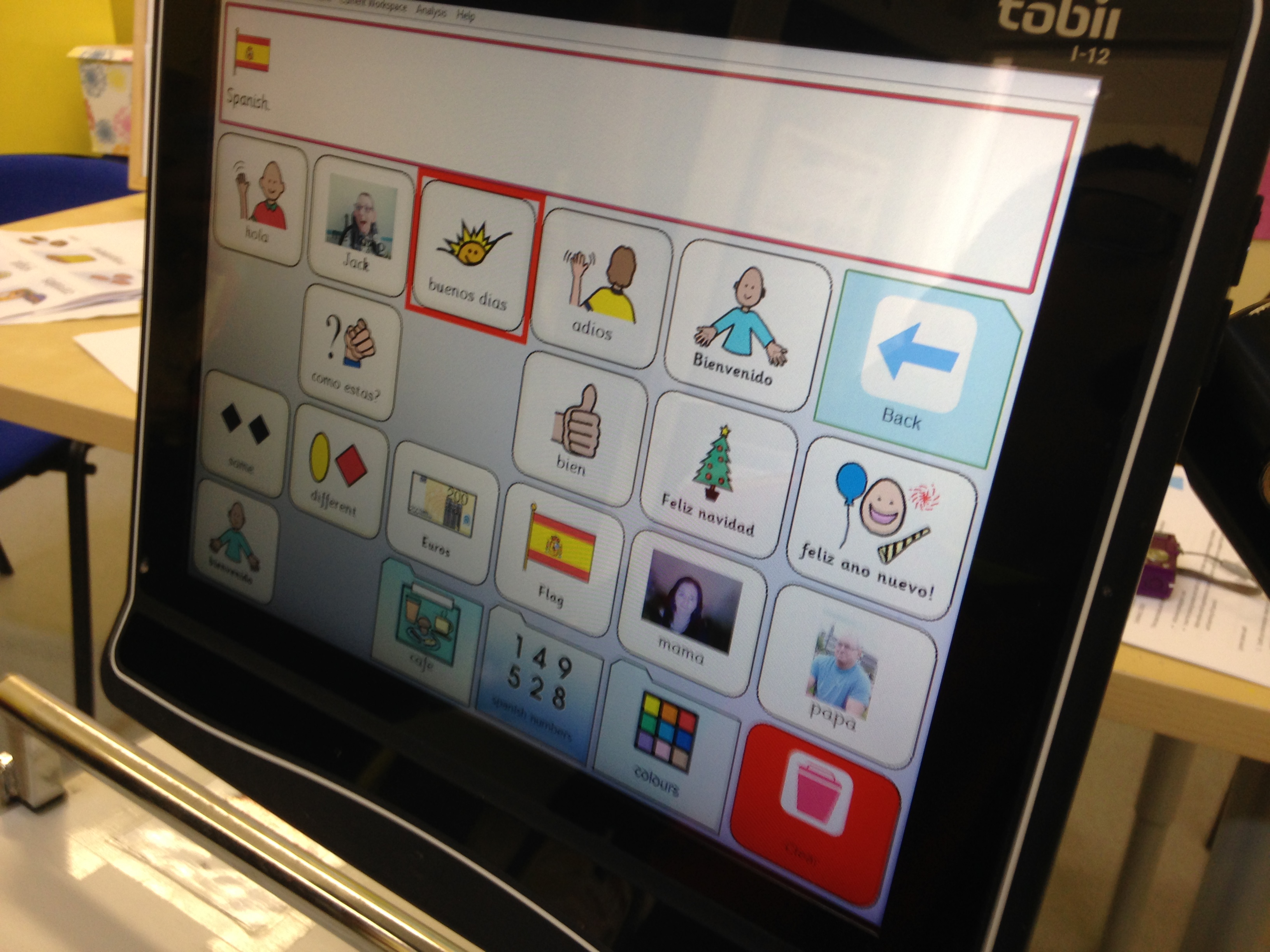
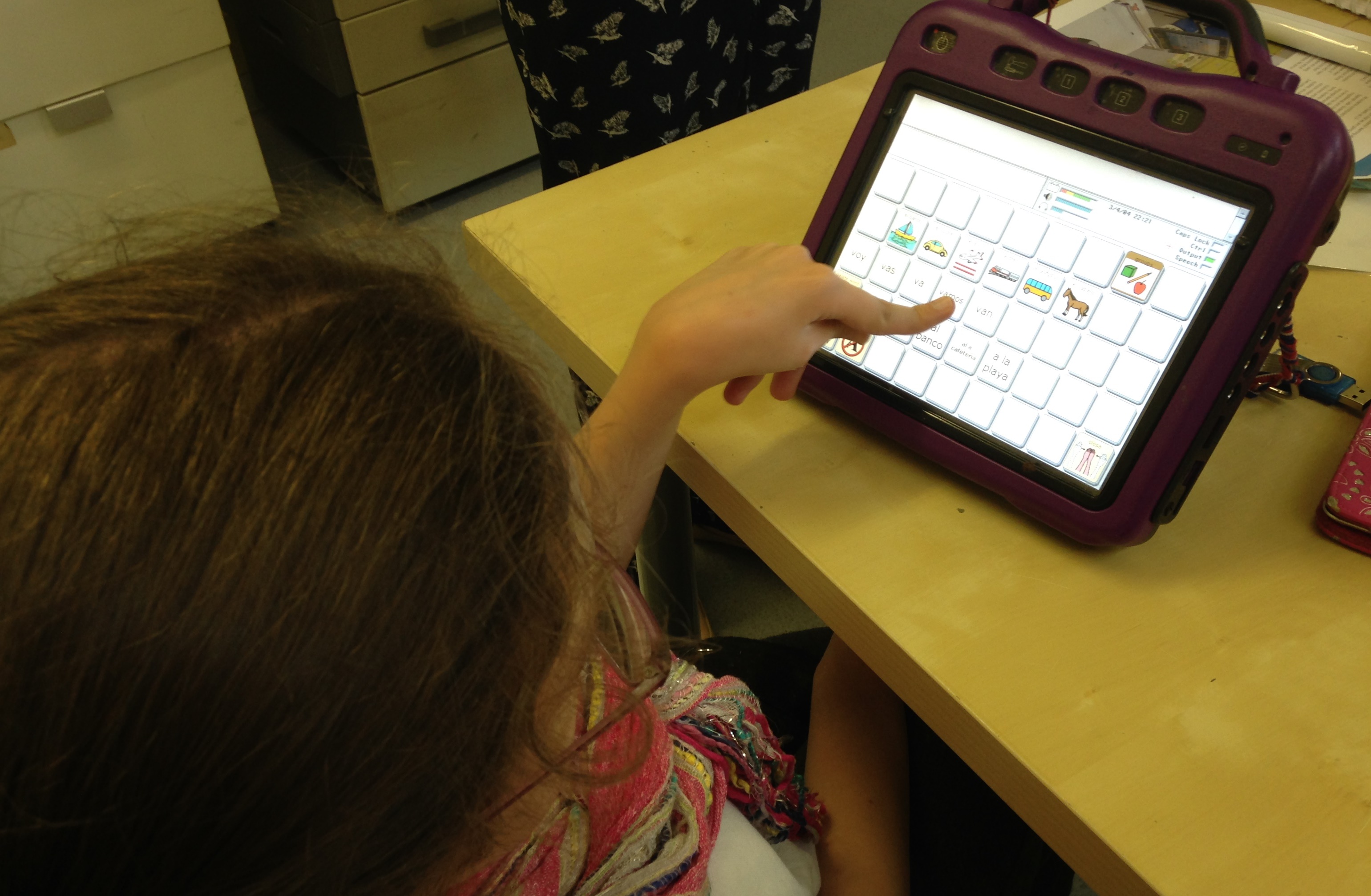
Spanish words and phrases are programmed into their communication systems by skilled staff. Teigan, S1/2 explained that her talker is easy to use. Lisa, S1/2 said that the pages with the Spanish words on the talker are useful in lessons. Sometimes Jack uses a talker, other times he uses a Pragmatic Organisation Dynamic Display or PODD book.
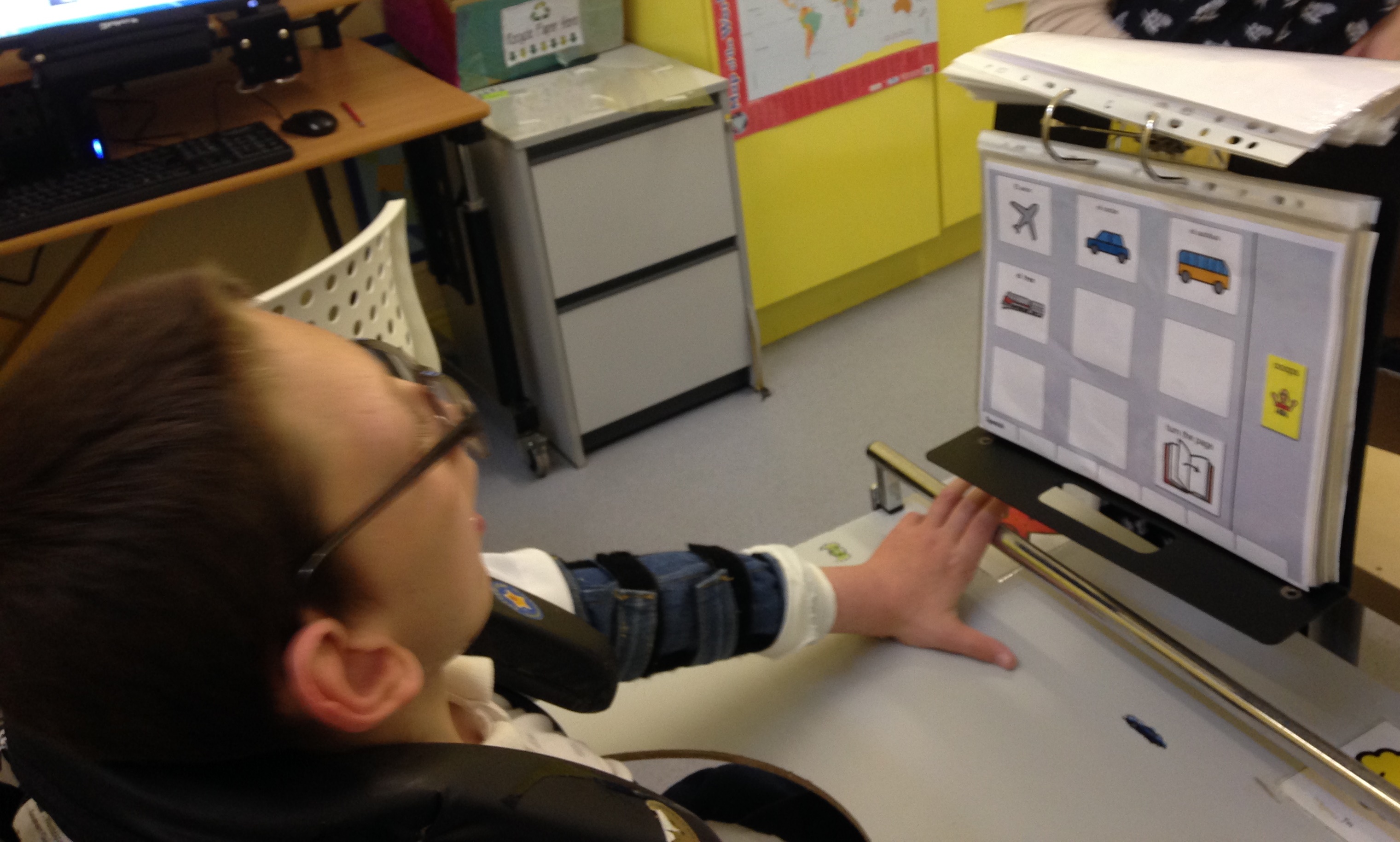
‘I give a list of vocabulary that I’m going to be teaching at the beginning of each term, what they already have their previous vocabulary on from the very beginning of Spanish up to where they are now and then anything that we use incidentally I think will be on … then the talker gets done on an ad hoc basis … I always provide the list for the PODD books to Speech & Languages Therapy and the talkers to the class staff who know how to programme them at the beginning of each term.’ (Maggie Macaskill, Spanish teacher)
Pupil Support Workers are trained to programme the devices and adding new vocabulary is a regular part of their job. They agree that it is a straightforward process although sometimes it might take two or three attempts to input variations of a Spanish word before they get the right pronunciation from the machine.
Find out more about PODD books, other augmentative and assistive communicative technologies, AAC Scotland and the Other Ways of Speaking publication from the Communication Trust.
The recent addition of a sensory theatre at the school has great potential to open up new learning experiences for pupils.
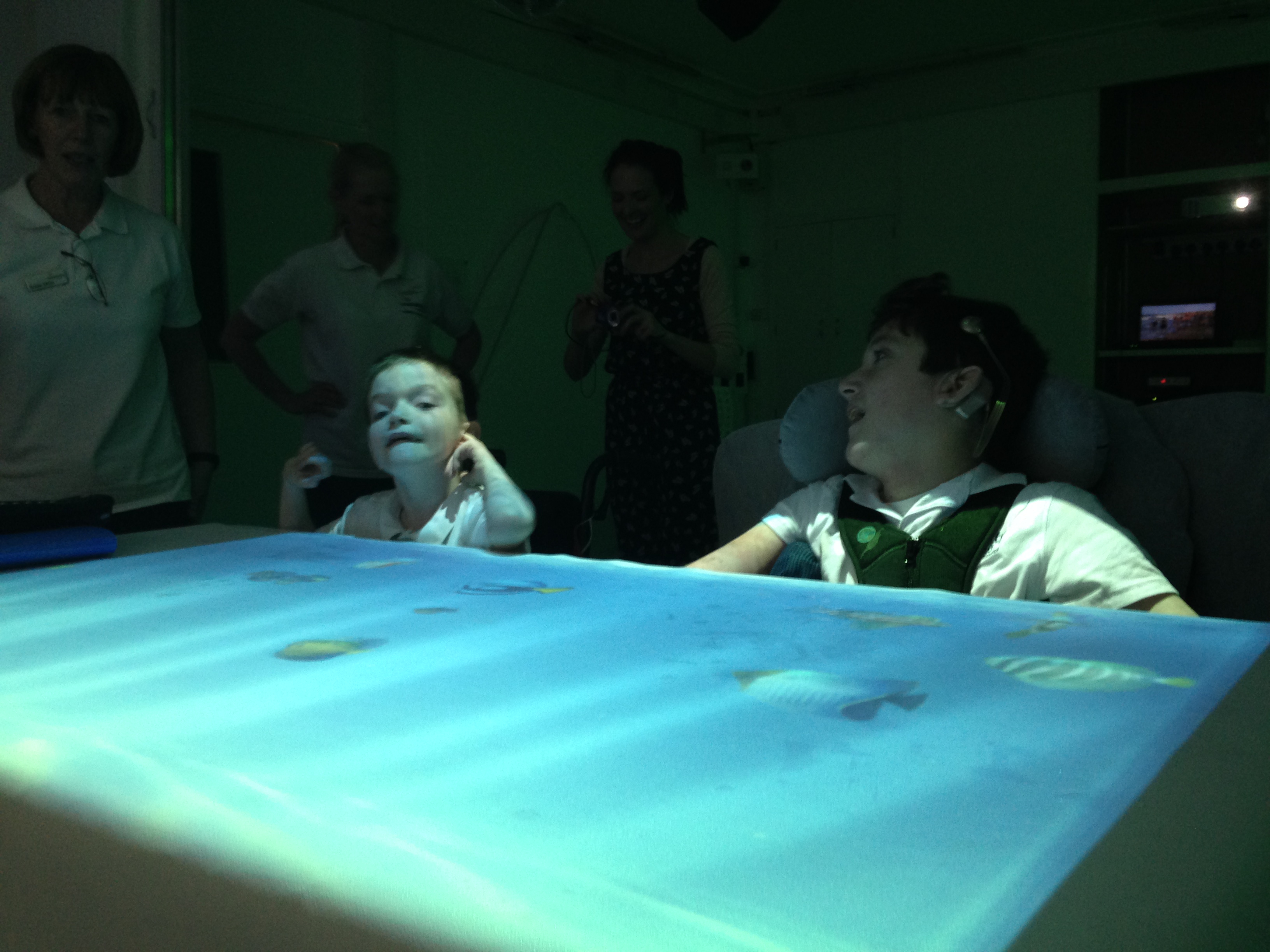
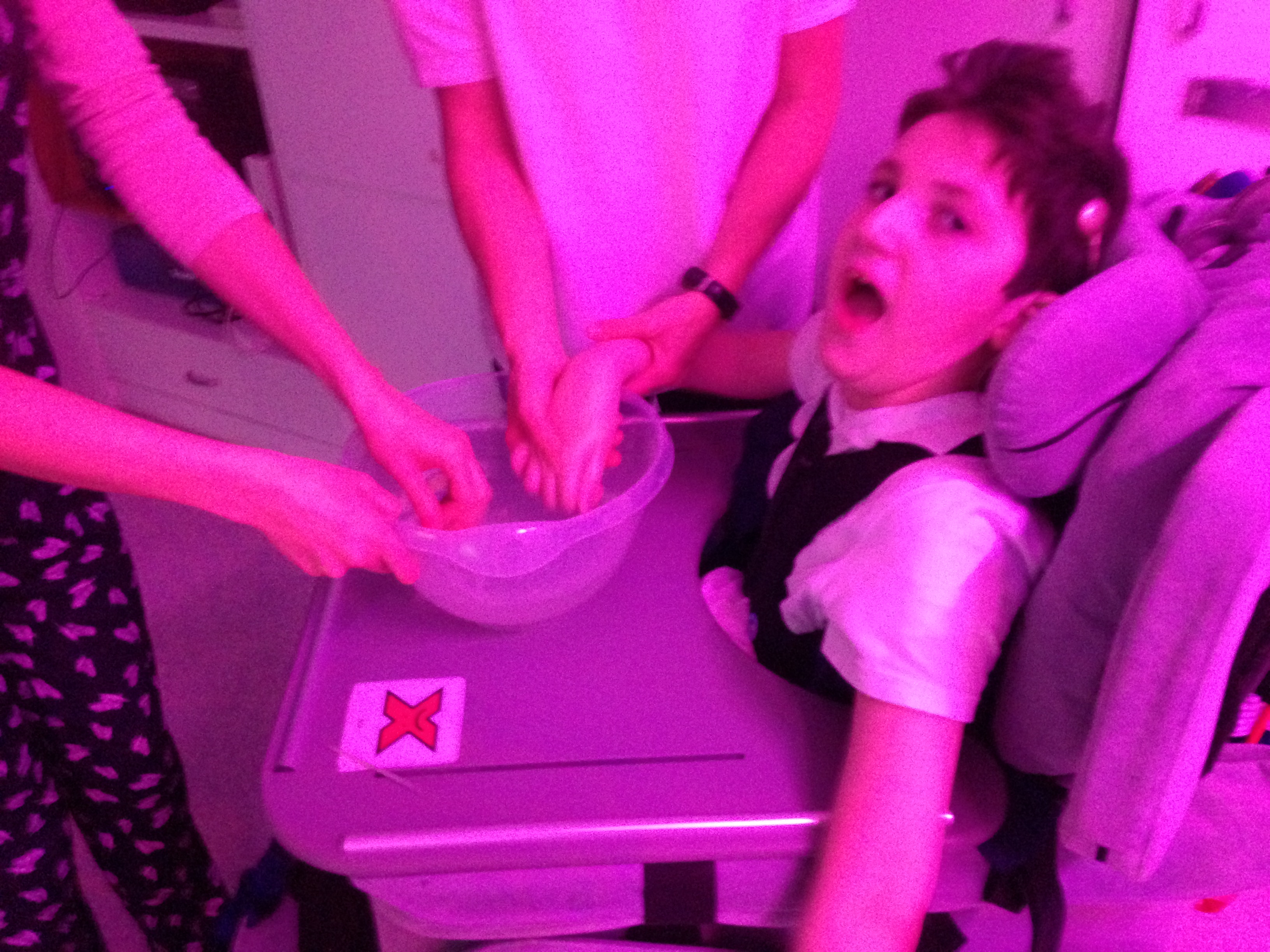
Rufus and Gary enjoy a virtual trip to the Costa del Sol in the sensory theatre, where there are images to look at, sounds to hear and feel, objects to touch and smell.
At Corseford School the methods of assessment used will be highly individualised, dependent on the needs of individual learners … Pupils take part in their own assessment by evaluating their work against clearly-stated criteria. Peer assessment is also used.
Formative Assessment is used on a near constant basis. As staff members and pupils work closely together, decisions are made on understanding, learning, progress, level of support required and next steps. Given the complex needs of our pupils, these decisions will often be informed by outside factors which can impact learning and progress. This assessment may take the form of considered questioning, observation or classroom interactions which promote learning.’ (Departmental Handbook, 2015, internal)
For CfE friendly advice, ideas and research for languages for any learner with additional learning needs, go to Languages without limits.